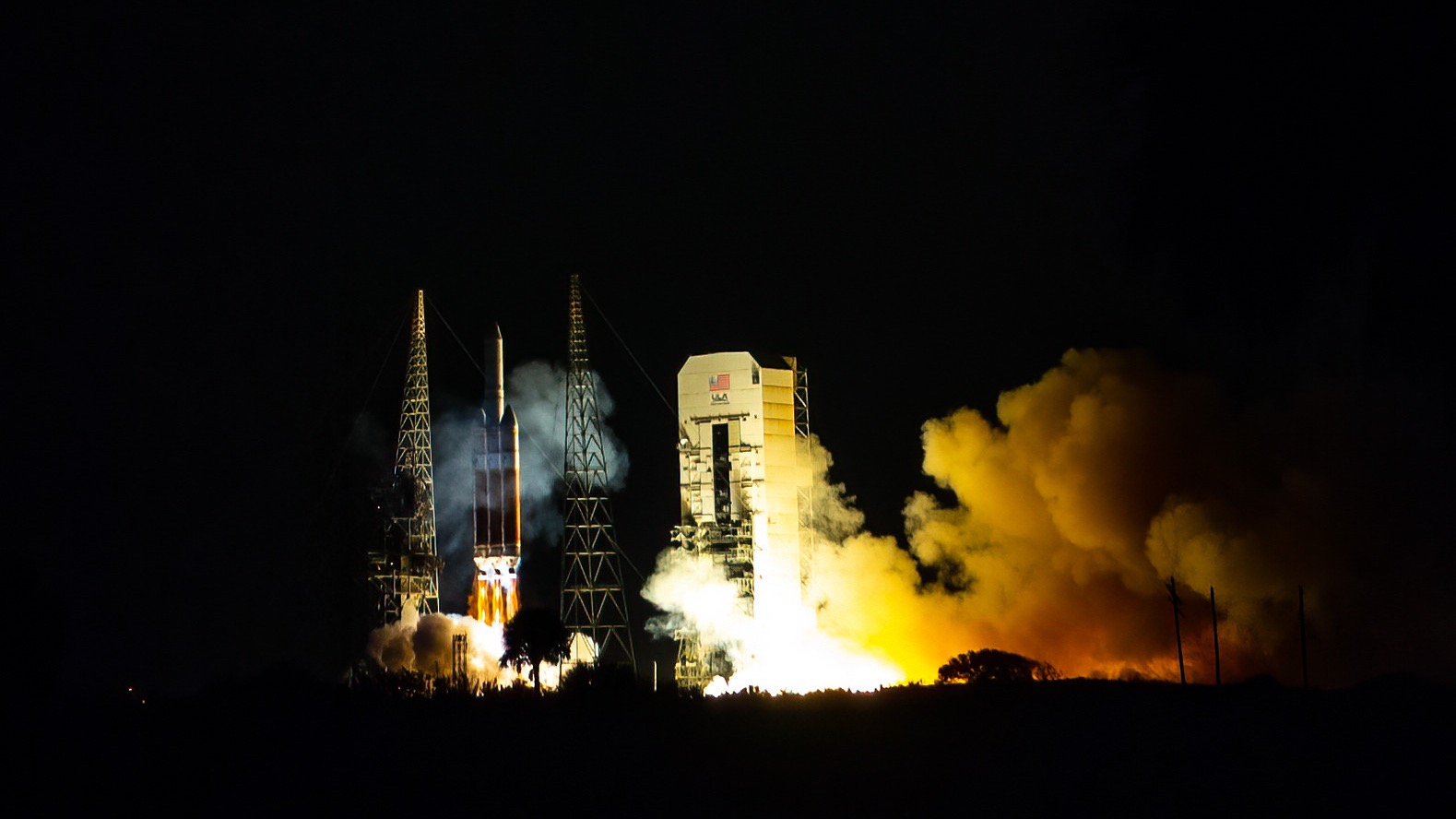
Later today we expect to see the Delta IV launch its final mission. About two weeks ago ULA was forced to scrub its last attempt after issues with a pumping system arose in the final minutes of the countdown. A question I’ve seen popping up in a few groups was “Why is ULA retiring the Delta IV?” It’s a valid question, the large capable rocket seems like it should have a long life ahead still but alas, ULA has other plans.
The Delta name to come to a end
So why is ULA retiring a perfectly capable and rather exciting rocket to see launch? The short answer is that ULA is replacing it with Vulcan. The long answer is.. well longer.
The Delta IV was developed in the 90s by then Boeing to compete in the Air Force’s Evolved Expendable Launch Vehicle program. This program was designed to replace the aging Delta II, Atlas II, and Titan IV rockets currently launching government payloads with cheaper and more reliable options.
Out of this program was gained the Delta IV (Boeing) and Atlas V (Lockheed Martin). Eventually SpaceX‘s Falcon 9 was added to the list, although its development was sprung out of NASA’s Commercial Resupply Services program for the ISS.
In the early 2000s, due to many factors but mostly because neither company was able to make a profit off of launching the military’s satellites, Boeing and Lockheed Martin conjoined their launch efforts into United Launch Alliance. This formed a defacto monopoly for both government and commercial launch services in the United States until SpaceX came along.
Outside of its first two missions, all of Delta IV Heavy’s 15 launches can be placed into three categories: Orion spy satellites, Key Hole spy satellites, and NASA missions. Never did it get an option to launch payloads for commercial companies like its adopted sibling, the Atlas V.
With the rise of SpaceX’s low cost and extremely reliable rockets, the Delta IV Heavy is no longer the most powerful and it’s why to expensive and long to build for commercial contracts. ULA hasn’t had a large share of yearly launches for many years and it’s in danger of losing the majority of Space Force allocated missions in the upcoming allotment of Phase 3 missions. So Vulcan was developed.
Vulcan is ULA’s next generation rocket which uses Blue Origin designed engines and takes many technologies from both Delta and Atlas, and many new ones that weren’t around in the 90s. Vulcan is suppose to be able to compete better on price to the Falcon 9 and Heavy and has already gained several lucrative commercial launch contracts for Amazon’s Kuiper satellite internet constellation.
The first Vulcan flew in January of this year and was extremely successful. Eventually SpaceX will take over SLC-37, Delta IV’s launch pad in Florida, for use with its Starship rocket.
So make sure not to miss this final mission, as there isn’t another rocket currently that sets itself on fire just before liftoff.
Join our Discord Server: Join the community with forums and chatrooms about space!
Delta IV Heavy delays final launch attempt
Thursday afternoon, March 28, ULA prepared for the final launch of the Delta IV Heavy. This was also the defacto final launch of the entire Delta rocket family, whose first rocket launched back in 1960.
While the countdown went smoothly and everyone polled “Go” for launch, a few seconds into terminal count a hold was called by the launch systems. While we suspected at the moment it was weather, as high winds were a major concern before launch, it turned out to be a technical problem with the rocket.
The launch of a United Launch Alliance Delta IV Heavy carrying the NROL-70 mission for the National Reconnaissance Office was scrubbed today due to an issue with a liquid pump failure on the gaseous nitrogen pipeline which provides pneumatic pressure to the launch vehicle systems. The team continues to troubleshoot the pipeline and more time is needed to instill confidence in the system.
ULA Statement
This isn’t a new problem, and the Delta IV isn’t know for being a rather reliable rocket when it comes to lifting off without any issues. However, for the last few launches of the Delta IV Heavy we’ve been spoiled to nearly flawless countdowns. Just seems like the Delta IV will be going down swinging.
After about two weeks of work on the pad to get the system ready to be used one last time, ULA is ready to reattempt the final Delta launch on April 9 at 12:53 P.M. ET.
FTC: We use income earning auto affiliate links. More.

Comments